Disclaimer: This article is intended to provide general information on productivity tools and strategies for managing ADHD. It is not a substitute for professional medical advice, diagnosis, or treatment. Always seek the guidance of a qualified health professional regarding any health concerns or conditions.
What is ADHD?
ADHD (Attention Deficit Hyperactivity Disorder) is a neurodevelopmental disorder that affects both children and adults, impacting their ability to focus, manage time, and control impulses. It's a condition that can lead to difficulties in various aspects of life, including school, work, and relationships.
You might also like:
One of the most common symptoms of ADHD is a persistent pattern of inattention and/or hyperactivity-impulsivity that interferes with daily functioning. This can manifest as an inability to stay organized, trouble following through on tasks, and frequent distractions. These challenges often make time management a significant hurdle for individuals with ADHD.
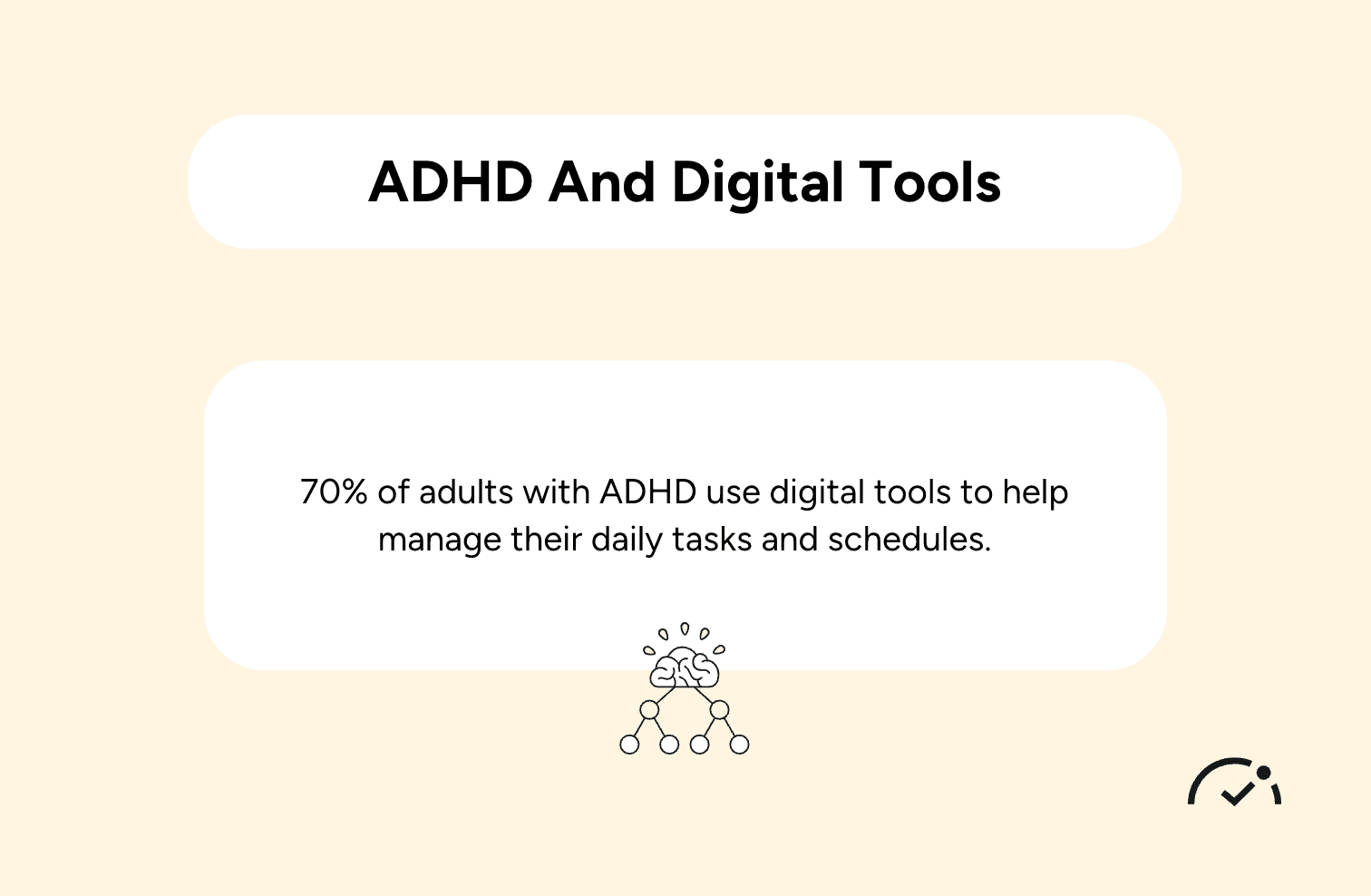
Behavioral therapy is one of the most effective treatments for ADHD. This form of therapy focuses on modifying behaviors to improve focus, organization, and overall mental health. It often includes techniques to help with time management, such as breaking tasks into smaller, manageable parts and using reminders or timers to stay on track.
ADHD can make it difficult to manage time and stay organized.
Behavioral therapy is a common and effective treatment.
An estimated percent of adults are affected by ADHD.
Effective time management strategies are crucial for improving mental health.
Understanding ADHD is the first step toward managing it effectively. With the right tools and support, individuals with ADHD can lead productive, fulfilling lives.
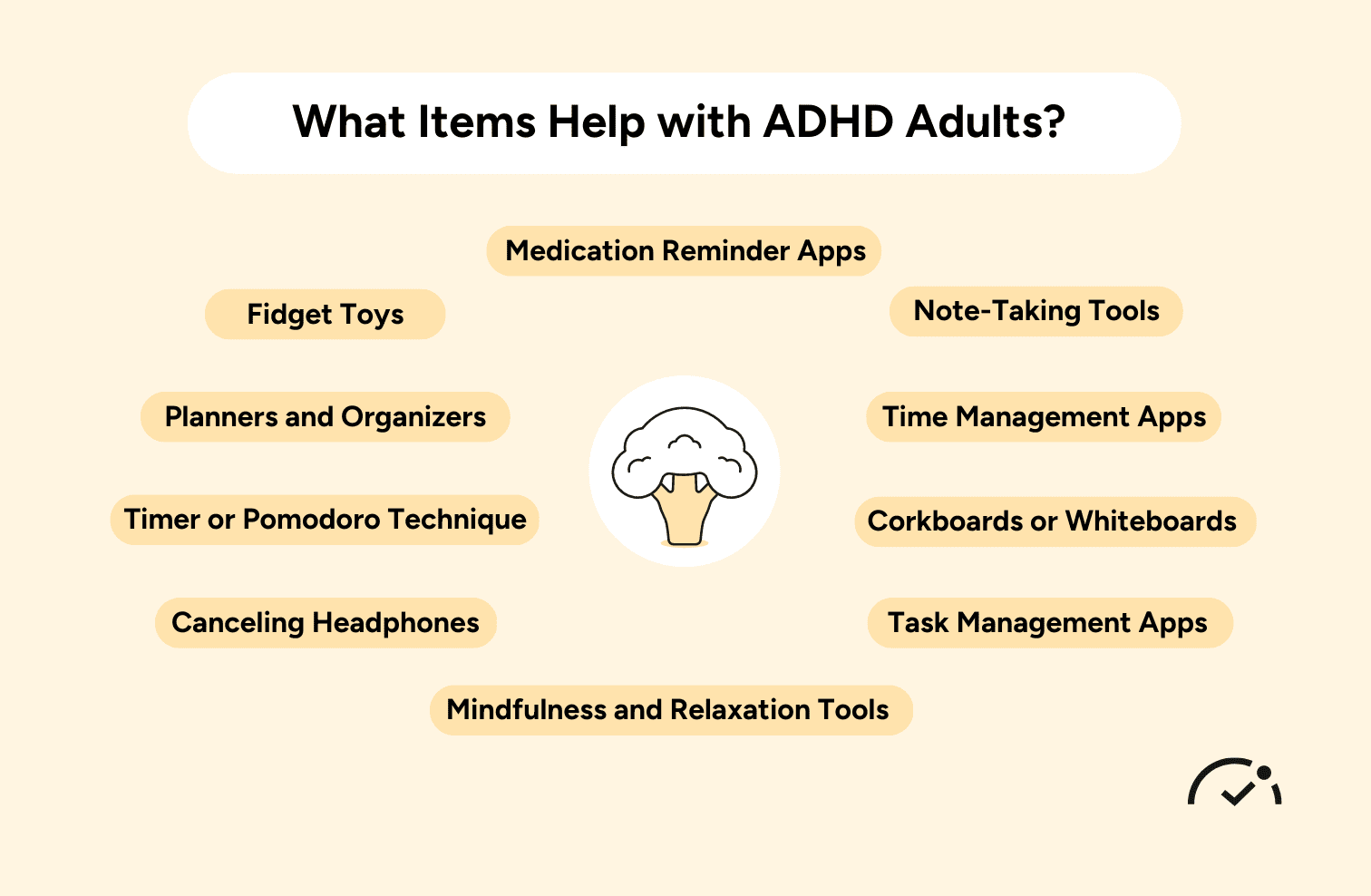
What to Look for in an ADHD Management Tool
When choosing a tool to help manage ADHD, it's essential to find one that aligns with your unique needs. A good ADHD management tool should support your ability to focus, organize, and complete tasks effectively. Here are a few key features to consider:
Time management apps: Look for apps that help you break down your day into manageable chunks. These apps can improve your time management skills by setting reminders and creating a structured routine.
To-do list functionality: An effective productivity app should offer a robust to-do list feature, allowing you to easily access tasks and prioritize them based on urgency and importance.
Support for frequent breaks: Tools that encourage frequent breaks can be beneficial, as short breaks help maintain focus and reduce fatigue, both crucial for managing ADHD.
Collaboration with a health professional: Some apps allow for shared access with a health professional, enabling them to monitor progress and provide tailored advice.
Choosing the right tool can make a significant difference in developing better time management skills and increasing overall productivity.
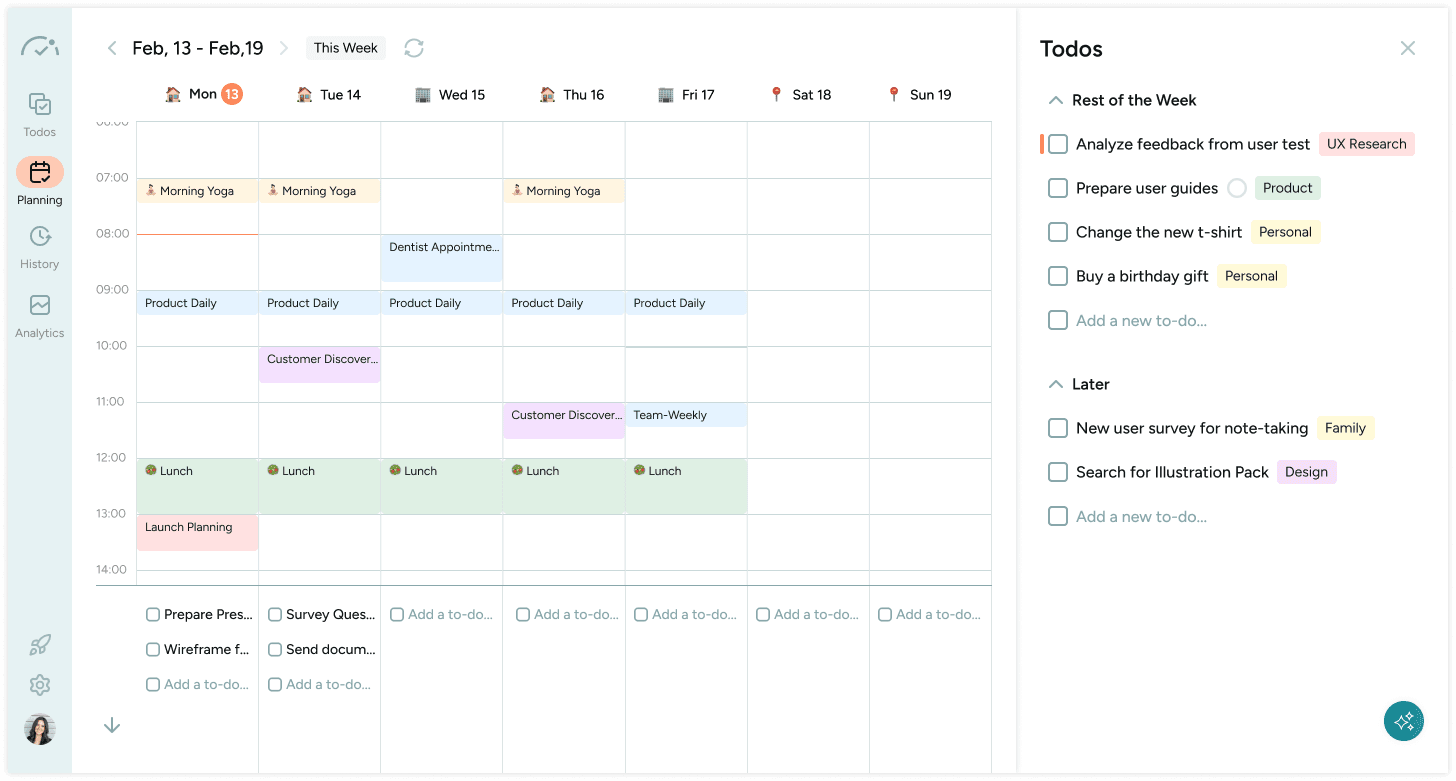
BeforeSunset AI: A Revolution for Adults with ADHD
Managing ADHD as an adult can be challenging, particularly when it comes to staying organized and focused.
BeforeSunset AI offers features designed to support adults with ADHD by helping them structure their day and manage their time effectively.
Key features for ADHD management include:
Time-blocking: Breaks the day into manageable segments, allowing for focused attention on individual tasks.
Time-tracking: Monitors time spent on tasks, improving time management skills and providing valuable insights.
AI Assistant: Automatically plans the day, makes tasks actionable, and creates subtasks, reducing cognitive load.
Mindful productivity: Focuses on the human aspect of productivity, prioritizing individual needs and promoting overall mental health.
By integrating these powerful features, BeforeSunset AI serves as an essential tool for adults with ADHD.
Helping them create a structured, manageable schedule that aligns with their needs and promotes overall mental health.
Beyond BeforeSunset AI: 4 Other ADHD Management Tools for Adults
When it comes to managing ADHD and boosting productivity, finding the right tools can make all the difference.
While BeforeSunset AI offers a range of features tailored to adults with ADHD, there are other productivity apps that can also help you stay on track and manage your time effectively. Here’s a closer look at four of them:
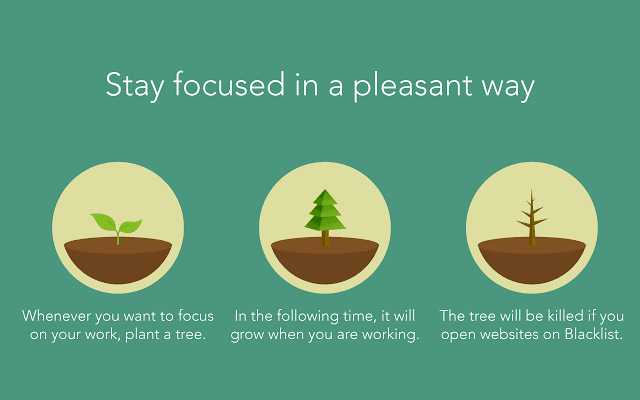
1. Forest
Forest is a unique productivity app designed to help users focus by encouraging them to stay off their phones.
When you start a task, you plant a virtual tree that grows over time. If you leave the app to check notifications or browse, the tree dies.
Key Features:
Encourages focus through gamification.
Tracks productive time.
Offers the satisfaction of planting real trees through accumulated points.
Forest is ideal for those who need a visual and interactive way to maintain focus and reduce distractions, making it a great companion for managing time management skills.
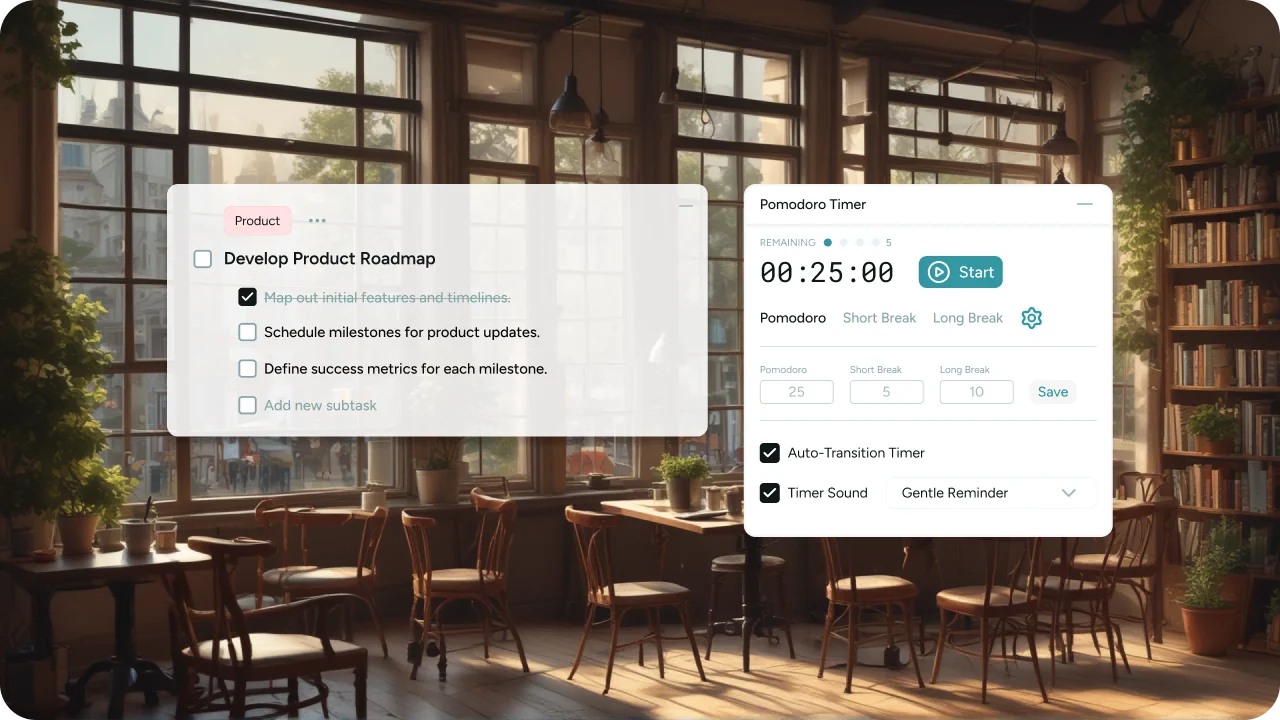
2. The Oasis
The Oasis by BeforeSunset AI is a calming, mindful productivity tool that helps you manage your daily tasks while reducing stress. It provides a peaceful virtual environment where you can plan and execute your day.
Key Features:
Frequent breaks with guided relaxation.
To-do list integration with soothing background visuals.
Focus sessions that align with behavioral therapy techniques.
For those who struggle with maintaining focus and need a supportive, calming environment, The Oasis offers a space to breathe while staying productive.
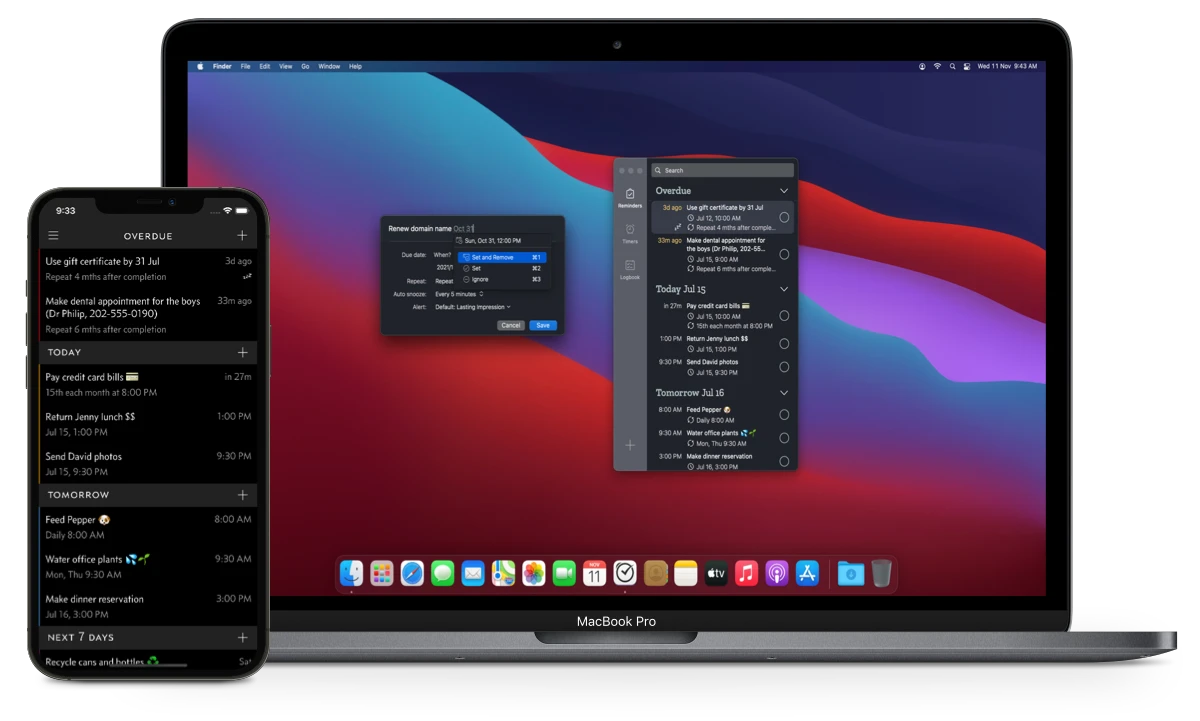
3. Due
Due is a simple yet powerful reminder app that ensures you never forget a task. It’s perfect for adults with ADHD who need constant reminders to stay on track.
Key Features:
Customizable alerts that persist until the task is marked complete.
Quick entry of tasks and reminders.
Minimalistic design focused on getting things done.
Due is excellent for managing the common symptoms of ADHD, such as forgetfulness and time blindness, by keeping tasks front and center.
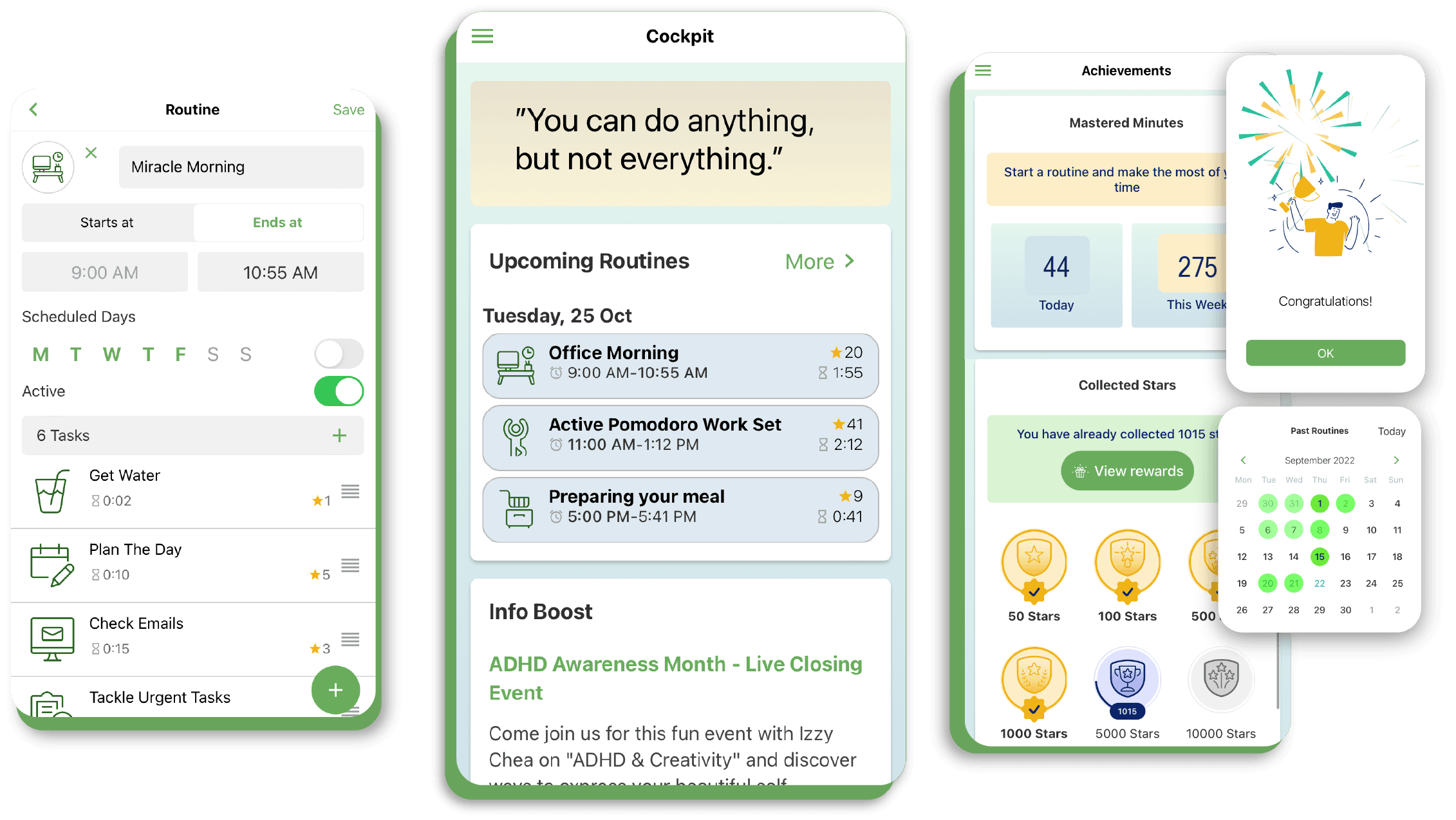
4. Brilli
Brilli is an ADHD-friendly app that helps users break down tasks into manageable steps. It emphasizes the importance of frequent breaks and rewards you for completing tasks.
Key Features:
Task breakdowns for better time management.
Timers that signal when to take a break.
Visual and auditory cues to keep you engaged.
Brilli is especially helpful for tackling complex projects by breaking them into smaller, achievable goals, making it easier for those with ADHD to stay focused and organized.
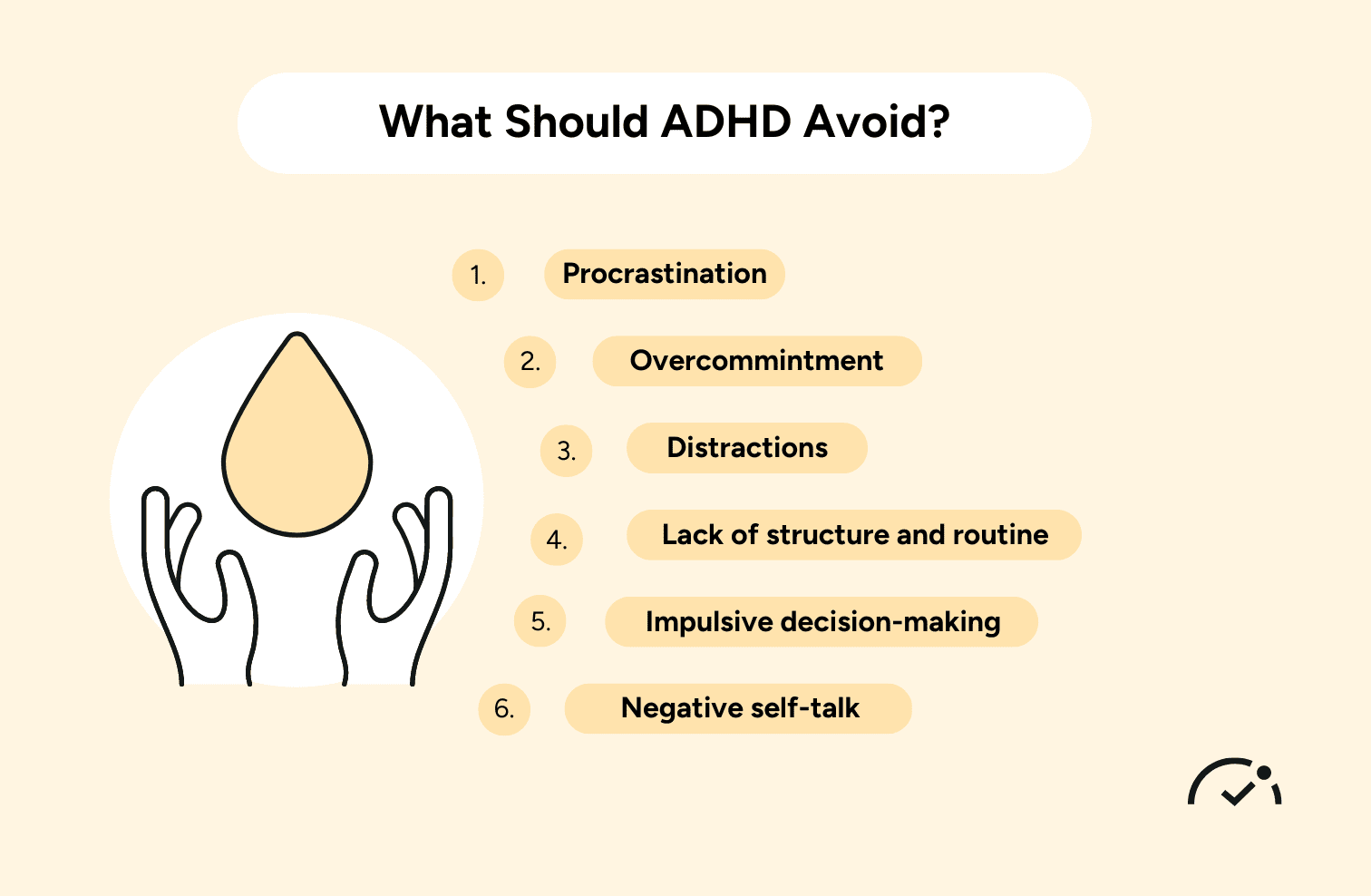
Don’t Give Up the Fight Against ADHD
ADHD presents unique challenges, but with the right strategies, you can turn those challenges into opportunities for growth. Managing daily tasks and staying on track of time doesn't have to be overwhelming.
Don't Forget:
Set Time Limits: Allocate a specific amount of time for each task to stay focused and avoid feeling overwhelmed.
Use Breaks Wisely: Incorporate 5-minute breaks between tasks to recharge and maintain productivity.
Choose the Right Tools: Whether you use digital calendars or a piece of paper, find a management tool that fits your needs. Tools like planner apps and ADHD products can help you stay organized.
Remember, overcoming ADHD isn’t about changing who you are; it’s about finding what works best for you.
BeforeSunset AI offers a comprehensive solution to help you stay organized and focused, making it easier to manage your time and achieve your goals.
Embrace the tools that best support your needs and continue striving towards a balanced and productive life.


